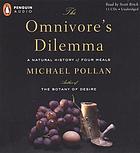Call Number: Stacks ML410 .B1 G28 2005
The legend is told in nearly every music appreciation class: King Frederick II (“The Great”) of Prussia—himself an amateur composer and flautist—practically falls over himself upon hearing that the great J.S. Bach has arrived to pay Frederick a visit. Gaines paints this meeting in much darker tones. History reveals Frederick to be a substantially more brutish, if not brutal, character. And so his challenge to Bach (that he compose a counterpoint to an unmelodic theme of Frederick’s) can be seen less as pleasurable Enlightenment discourse, and more as a stare-down. Bach’s response: The Musical Offering, a complete set of canons and fugues on the seemingly-impossible theme.




